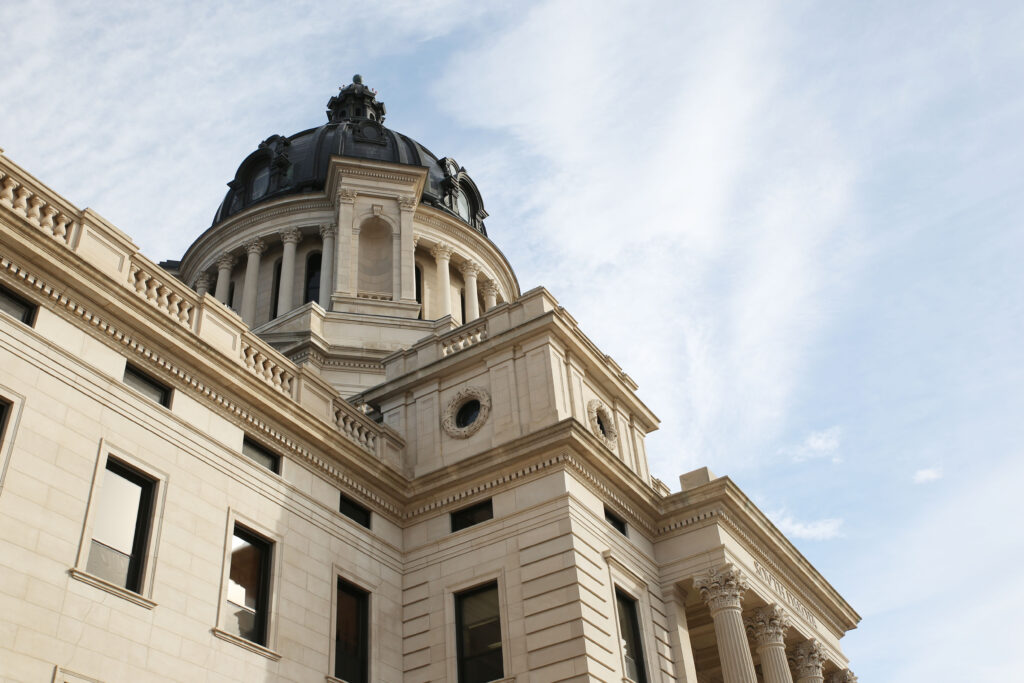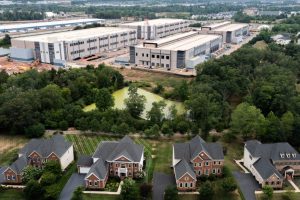A January 2025 view of the South Dakota State Capitol in Pierre. (Makenzie Huber/South Dakota Searchlight)
A legislative task force aiming to reduce property taxes for South Dakota homeowners will meet in Aberdeen this week with opportunities for public input.
The Comprehensive Property Tax Task Force will meet at 6:30 p.m. on Tuesday at the Kessler’s Champions Club on the Northern State University campus, and 9 a.m. on Wednesday in the same location.
The Tuesday evening meeting is dedicated solely to public comment, and the group is also scheduled to take public comment at 9 a.m. during the Wednesday meeting. Wednesday’s agenda also includes breakout discussions among task force members focusing on the intersection of property taxes with school, state government and local government funding.
From property to purchases: Task force considering fundamental tax shift to reduce homeowner burden
The task force is exploring government spending reductions as a potential way to cut property tax burdens. The group is also discussing an optional county-level sales tax of a half-percent to offset participating counties’ property taxes on owner-occupied homes, and a new state sales tax of 1% dedicated to education funding. The 1% tax would apply to most of the products and services that are currently exempted from sales taxes, and would stack on top of the existing state sales tax rate of 4.2% for other transactions.
Members of Abolish Property Taxes South Dakota pitched a transaction tax to the group at its Rapid City meeting last month. The proposal would aim to replace property taxes by adding a flat $1.50 tax on transactions of $15 or greater, and a tax of 10% on smaller transactions.
Earlier this year, lawmakers adopted Republican Gov. Larry Rhoden’s proposal to slow property tax increases with multifaceted reforms including a five-year, countywide 3% cap on growth in owner-occupied home assessments. That new law took effect July 1.
GET THE MORNING HEADLINES.






